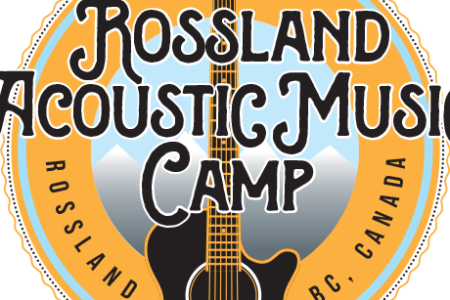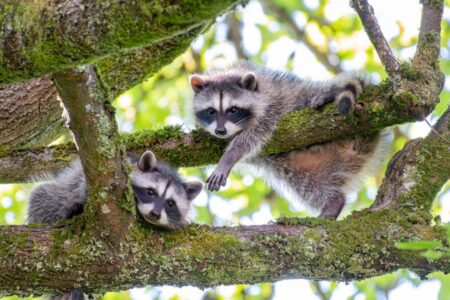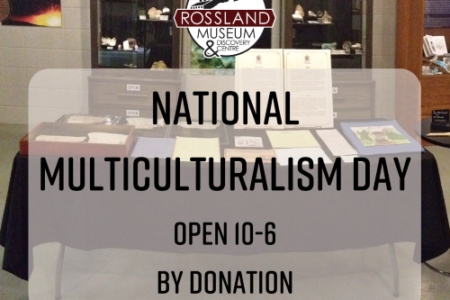Interview: Charlie Russell –A life lived with bears and valuable lessons learned
Playing out like a real life version of Avatar, Charlie Russell went to live with grizzly bears to find out how humans can better interact with them peacefully. Returning twelve years later with unimaginable experiences and tales of life with the bears, Russell learned that humans, not bears, are the problem in terms of cohabiting the same space. Russell is now on a mission to spread what he’s learned, inspire folks into caring about bears rather than fearing them, and–with a bit of luck–be the catalyst in a paradigm shift in the way humans interact with their ursine neighbours.
This week, the Telegraph caught up with Charlie to get a small look into the Bear Man of Kamchatka, who’ll be showing his movie and speaking at the Miners’ Hall this Saturday night.
Looking at your life’s work and some of your projects it’s overwhelming and inspiring to say the least. How did you first get interested in and involved with bears?
It was a long time ago. I got involved with bears when my father, Andy Russell, had this idea to do a documentary about grizzly bears and that was the first film ever done like that in the wild. Walt Disney had made a documentary about grizzly bears, but it was with captive bears in enclosures. So my dad did this film and my brother and I were his cameramen and we did this film in the wild depicting grizzlies in their natural habitat. That’s how I got an interest. That was in 1961 – 62. Almost 50 years ago.
What inspired you to follow in your father’s footsteps and study bears yourself?
What I saw in those early days was an animal that was very different than the stories we were told about them. I just got really interested in why these animals were so different from what people thought of them. All of the stories you heard about grizzlies were so full of fear and violence but the animal I saw was not. It was an animal that looked like it was peace loving, very wonderful and very intelligent. So I’ve been picking away at understanding these animals ever since.
Tell me about the basis of your twelve year project with the bears in Kamchatka?
Most of my work was done in Russia. I was the rancher in my family with two biologist brothers. We had a lot of black bear and some grizzlies on our Southern Alberta property growing up. I decided to see what would happen if they were just left alone and if they were the big problem that everybody claimed they were. I wanted to understand, were they really unpredictable and were they really dangerous if they lost fear of humans Those two main questions and beliefs didn’t seem right to me.
Why did you choose Russia?
Well first I tried to do the study in North America but I needed a place a long way from any civilization because what I want to do is befriend bears. I wanted to be the only human influence on the bears there. I wanted me to show them what to expect from humans. That took me to Kamchatka Russia.
Being in an area of Russia that had so many bears, I couldn’t help but have experiences with them every day. Living there and seeing what the conflicts were, well there were virtually no conflicts as long as I kept them out of my garbage and kept them away from things I didn’t want to break. I did that all with electric fencing. As far as the bears were concerned, it seems like bears kind of give us what we give them. If we give them violence then we get violence back but if we give them kindness and respect than we get that back. I studied that for twelve years there and somewhat out of the blue after arriving there I raised orphan grizzly cubs.
And just like that a bear study project turned into raising two baby grizzlies?
That wasn’t my original idea or reason to go there but I ended up getting these orphan cubs from a horrible zoo in the city and raising them. All sorts of interesting things showed up and happened then. Problems to be solved came fast. For example, I had to feed them when they were small and then how do I break them away from that aa they get older and those sorts of questions.
Living so closely with the bears, I would imagine there must have been some close calls.
There were very few close calls. Basically none. I did have lots of close calls in my plane. I was flying in and out and all around over there and the weather was just terrible. I had a few close calls when I got involved in the poaching that was going on there. Those close calls were with people, not bears. I put myself in danger doing those things but as far as my experiences with bears you wouldn’t believe how few close calls there were.
Not once did a bear get aggressive with you?
I had some run ins with bears that were predator males after my cubs. They were trying to kill my cubs, so I had to act like a mother grizzly and protect my cubs, and I was serious about it. Eventually they did kill one of my cubs and that’s when I felt my most stress around the bears. That was a stressful situation.
It must happen fairly quickly in that scenario to switch from thinking like a human to thinking like a bear?
It does, yes, but it’s kind of a universal communication. I didn’t have to change my thoughts too much to live with the bears. I learned an awful lot from them, actually–in how to live and how to think about things. I’m not a really quick thinker you know; the whole thing was pretty common sense. We have a certain habit and way of thinking about bears and we generally create the problems ourselves. We make them dangerous. The torment that we give them even in our national parks is terrible. Our bear management is very harsh. We’re rubber bulleting, hazing, sicking dogs on them, making them feel uncomfortable and trying to keep them afraid of people. Most park managers are so afraid of bears they don’t want a bear coming near anybody. This is a real problem for a bear. You can’t be spending all day running away from things and being stressed out.
What were some of your key findings through the project that can benefit others living in bear country?
It’s mainly how we dispose of our garbage. It’s really quite simple to keep garbage away from bears but it’s something you have to think about. Most people want to live nicely with animals but some just don’t care. What my film does is help people care enough to go to the trouble of finding ways to keep bears out of chicken coops and out of garbage. There are all sorts of applications I’ve worked out.
I had so many bears around I couldn’t event go to the bathroom without having a bear encounter. So I worked out these ideas about how we can do it, not just me but other people as well.
So what can people do to modify their behavior in a bear encounter?
Well, if you’re walking up a trail and there is a bear coming towards you, for instance, think of it this way. This bear is probably doing something more important to his life than you and he’s looking after his life very closely. He’s on a mission; he’s got to put enough fat on to sleep for six months. That’s a big job. He’s doing something important. Most people out walking in the mountains aren’t doing life critical things. So the idea is to get out of the bear’s way and let him use the trail. That means going sideways not going back down the trail.
That’s usually what you’re told; just go quietly back down the trail. That doesn’t really get you out of the way though because he’s going down the trail and now so are you–so get out of the way and let him continue on his mission. He’s not the least bit interested in interacting with humans. He wants to eat.
It’s also really good to talk to them; voice is the best tool. Even if they don’t know what you’re saying, bears get from your voice something about you and your intentions. They can tell if you’re an aggressive predator so you don’t want to talk aggressively and yell and scream. They can tell that you don’t mean to hurt them through your voice. It’s amazing what they pick up from us if you talk sincerely to them. You should also carry pepper spray as a backup if something ever happened. There could be a dangerous bear out there because of the history of violence that was bestowed on that bear he might finally be pissed off.
If we’re more careful about how we manage them or behave with them they will learn to trust us not fear us and it won’t be nearly the issue it is now. I had female grizzly mothers leave there cubs with me for the afternoon to babysit and they would do this year after year and generation after generation. Once they trust you, it’s unbelievable what is available to you as far as experiences are concerned.
I feel uneasy around bears in places like a national park where they are hazed and beat up all the time with beanbags and rubber bullets. This is not a good practice in my opinion. I think Parks Canada has a hard time changing that idea because they feel like there are litigation problems and they have to keep bears and people separate. I think the litigation is more about them creating a problem for people by treating the bears that way so just stop doing it.
What does the future hold for you? Will you ever go back to the bears in Russia?
I spent twelve years in Russia and I don’t want to go back that badly. It was a tough twelve years, not from the bears but from the humans involved. There were a lot of bureaucracies, officials, bribing and all of that stuff. I just don’t want to do that kind of thing anymore. It’s silly for me to go back anyway. I feel like I know enough about the bears now that I can answer the questions I originally sought to discover. What I want to do now is work on the human side of it because we are the problem. That’s what I’m doing now as part of this tour.


























